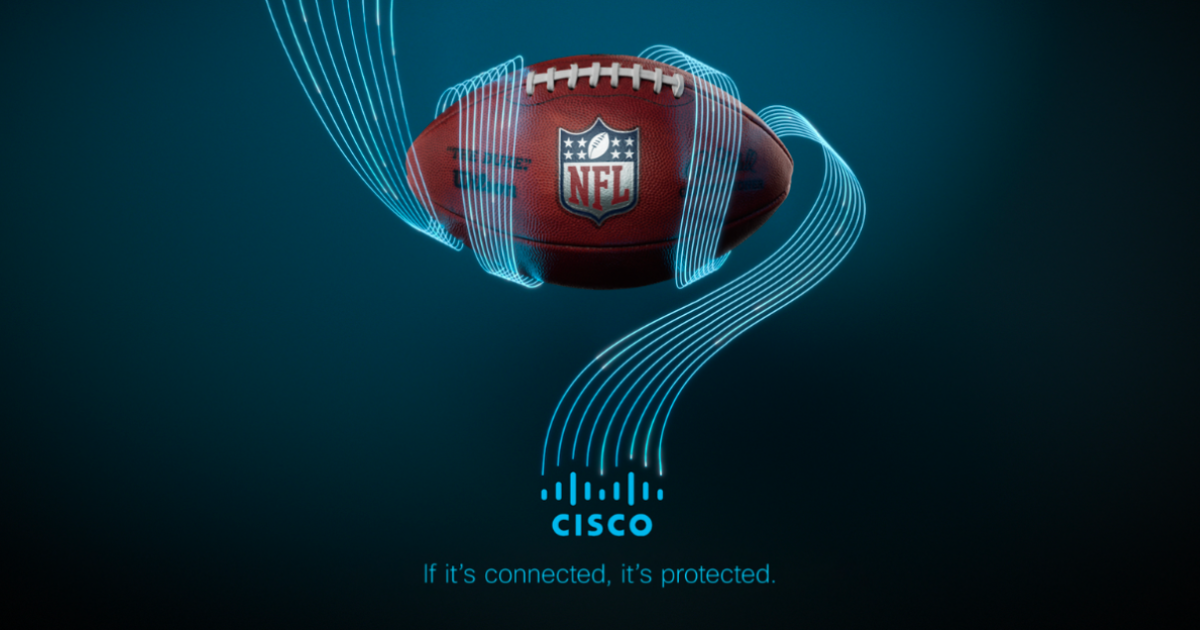- Learn with Cisco at Cisco Live 2025 in San Diego
- This Eufy robot vacuum has a built-in handheld vac - and just hit its lowest price
- I highly recommend this Lenovo laptop, and it's nearly 50% off
- Disney+ and Hulu now offer prizes, freebies, and other perks to keep you subscribed
- This new YouTube Shorts feature lets you circle to search videos more easily
To win against cyber attackers at Super Bowl LVIII, the NFL turns to Cisco XDR

On Sunday, February 11, over 160 million viewers from around the globe watched Super Bowl LVIII, making it one of the most viewed annual sporting events. It is also a good bet that a record number of bad actors were focused on the contest, not for The Big Game itself, but rather for the goal of implementing a successful cyberattack.
A report by the National Cyber Security Centre, The Cyber Threats to Sports Organisations, stated 70% of sports organizations experience at least one cyberattack per year, more than double that of any other industry. So, while the Kansas City Chiefs and San Francisco 49ers played on the field at Allegiant Stadium in Las Vegas, Cisco and its security allies battled potential cyber foes, relying on Cisco XDR as a shared platform deployed by Cisco and the National Football League (NFL) to manage and convey threats. This was the third consecutive year that Cisco, an official Cybersecurity Partner of the NFL, has had responsibility for securing Super Bowl, the league’s preeminent contest, against cyberthreats.
The Power of Integrations
The tactics and techniques used by bad actors to launch cyberattacks are always evolving, fed by the same innovative technologies that cyber defenders employ, such as Generative AI and machine learning. And the reality is that to effectively defend against these increasingly sophisticated attacks, security analysts need to integrate and streamline their approach. At Super Bowl LVIII, Cisco XDR integrated the NFL’s CrowdStrike Falcon endpoint deployment to gain new visibility capabilities for the team of savvy Cisco threat hunters.
There were also a dozen third-party threat intelligence sources integrated along with the industry-leading Cisco Talos to enrich threat investigations. The ability to quickly glean context for an observable from many sources is crucial, and this is made possible through the correlation of all this telemetry within Cisco XDR. Often an investigation can start with a crumb of data and blossom into a full-blown case when this enrichment from Talos and third-party threat intelligence sources are added to the equation.
A Winning Game Plan
Knowing what play to call and execute at any given moment is critical to winning, both in football and in cyber defense. The variable threat scoring with Cisco XDR was integral to the triaging of security incidents, prioritizing alerts to give analysts a clear play to execute. Since Cisco XDR enables us to set prioritizations for every asset and device, we were able to give priority to what was most important, whether at Allegiant Stadium where the game was being played or any of the other environments we secured. And to make sure that everyone on the cybersecurity team was on the same page, the Cisco XDR Casebook served as a shared source of truth for active and investigated security events and threats. All combining for a winning game plan.
If Cisco XDR can help secure one of the highest profile and most watched sporting events in the world, imagine what it can do for you and your team of cybersecurity experts in thwarting the most challenging adversaries and attacks. Visit the Cisco XDR webpage to learn how you can join the winning team.
We’d love to hear what you think. Ask a Question, Comment Below, and Stay Connected with Cisco Security on social!
Cisco Security Social Channels
Instagram
Facebook
Twitter
LinkedIn
Share:

